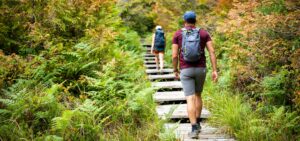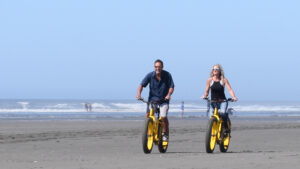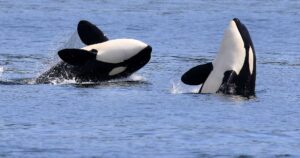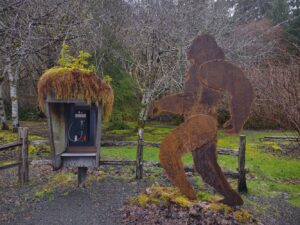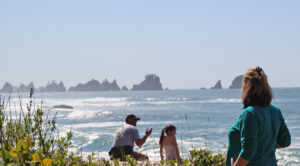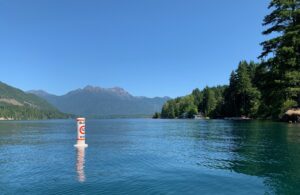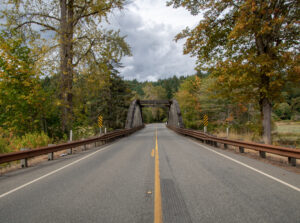Experience the transformation of an historic waterway near the small town of Joyce. The story of the Elwha River is as wide and wandering as its path from its headwaters in the Olympic Mountains to the Strait of Juan de Fuca.
The riverbank was once home to the Lower Elwha Klallam Tribe, who depended on the river’s bounty of salmon and trout. Dams built in the 1800s provided electricity for the booming lumber industry, but blocked salmon migration and flooded tribal homelands and cultural sites.
A century later, passage of the 1992 Elwha River Ecosystem and Fisheries Restoration Act set in motion removal of the dams and restoration of the ecosystem. By 2014, the two dams were gone. (Check out the removal process.)
Today, the Elwha River flows freely, and a big transformation is underway. More than 70 acres of new habitat have been created, and tribal members have restored access to sacred sites and revived long-ago cultural traditions. You’ll find some of the most dramatic changes at the mouth of the Elwha River, where wetlands, beaches and the estuary are being rebuilt.
Stroll the sandy beach, explore the riverbank, soak up the sun, take in the sounds of waves, and ponder the power of Mother Nature. Walkers, picnickers and surfers will want to check out the new beach at the east end of Freshwater Bay. The protected waters are ideal for kayaks and small boats. A boat launch at the west end of the bay provides the perfect spot to hit the water.
What’s with the names?
Don’t let the names fool you. Freshwater Bay is saltwater. Early explorers found drinking water from the Elwha River. On the other hand, Salt Creek is fresh water, though definitely undrinkable. Tides from the Strait of Juan de Fuca that bring saltwater up the river account for the brackish water.


